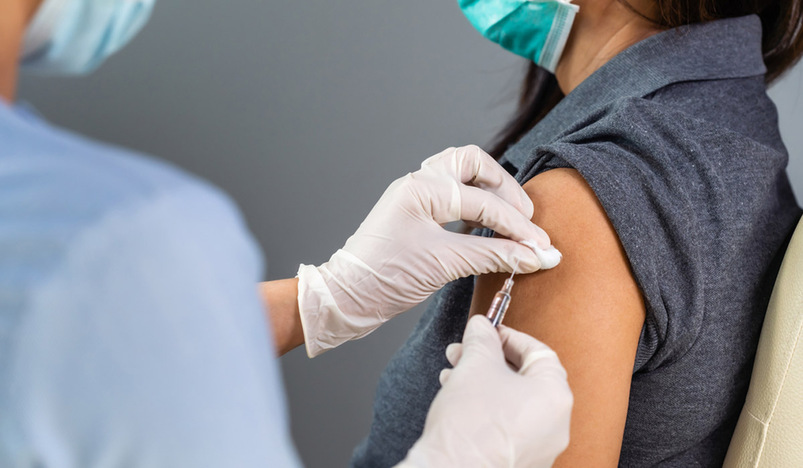
Booster Dose Effective Against COVID-19, According to New Clinical Evidence
Senior health officials at the Ministry of Public Health say multiple local and international scientific studies show clear evidence that for the majority of people the protective immunity against infection obtained from the first two doses of the vaccine gradually declines with the passage of time, supporting the need for a booster vaccination after six months following the second dose to restore the immunity to the previous levels achieved.
Among the growing research showing waning immunity from the vaccines after six months are two studies carried out by investigators from the Ministry of Public Health, Hamad Medical Corporation, Weill Cornell Medicine-Qatar and Qatar University.
The studies, published in the prestigious New England Journal of Medicine and Journal of the American Medical Association, both support the durability of the effectiveness of the vaccines at preventing COVID-19 hospitalization and death. However, both studies show that vaccine protection against mild and moderate infection wanes over time after the second dose.
"The increasing body of published research overwhelmingly supports the MOPH's policy of offering the booster dose to all individuals who received their second vaccine dose more than six months ago," said Dr. Abdullatif Al Khal, Chair of the National Health Strategic Group on COVID-19, Head of Infectious Diseases at Hamad Medical Corporation, and one of the lead investigators in both studies.
"The booster dose significantly increases the individuals immunity and provides longer-term protection against the virus. With the recent increase in cases in Qatar and the first cases of Omicron variant detected in the country, it is important that all members of the community continue to play their part by getting their booster vaccine dose. Recent studies show booster doses to be highly effective at preventing severe infection against the new Omicron variant and it is very important that everyone who is eligible for the booster in Qatar has maximum protection," added Dr. Al Khal.
For his part, Professor Laith Abu-Raddad, Professor of Infectious Disease Epidemiology at Weill Cornell Medicine-Qatar of Qatar Foundation, who led the research in both local studies, said: "As time goes on our knowledge and understanding of COVID-19 and the vaccines effectiveness improves as more and more research is undertaken and the results are published. The scientific clinical evidence sends a clear message to the public that they should not delay getting their booster vaccine when they become eligible at the six-month mark."
Dr. Roberto Bertollini, Senior Advisor to the Minister of Public Health, Deputy National Lead for Health in All Policies, and one of the lead investigators in both studies, said the local studies carried out in Qatar are consistent with international findings: "The research we have undertaken here in Qatar is in line with the findings of multiple international studies, showing up to 95 percent effectiveness against severe infection during the first six months, followed by a quick decline in immunity. These findings should reassure members of the public about the effectiveness of the vaccines, while also supporting the need for people to have their booster dose promptly," explained Dr. Bertollini.
Booster vaccines are available at all Primary Health Care Corporation health centers and PHCC is directly contacting people who are eligible for the booster vaccine dose to set an appointment.
Anyone who is eligible and has not yet been contacted can call the PHCC hotline on 4027 7077 or use the PHCCs mobile app, Nar'aakom, to schedule an appointment. Prior appointments are needed before visiting a health center and no walk-in appointments will be given.
Source: QNA
.jpg)
Qatar Secures Place Among the World's Top 10 Wealthiest Nations
.jpg)
Hamad International Airport Witnesses Record Increase in Passenger Traffic

Saudi Arabia: Any visa holder can now perform Umrah

What are Qatar's Labour Laws on Annual Leave?
Leave a comment